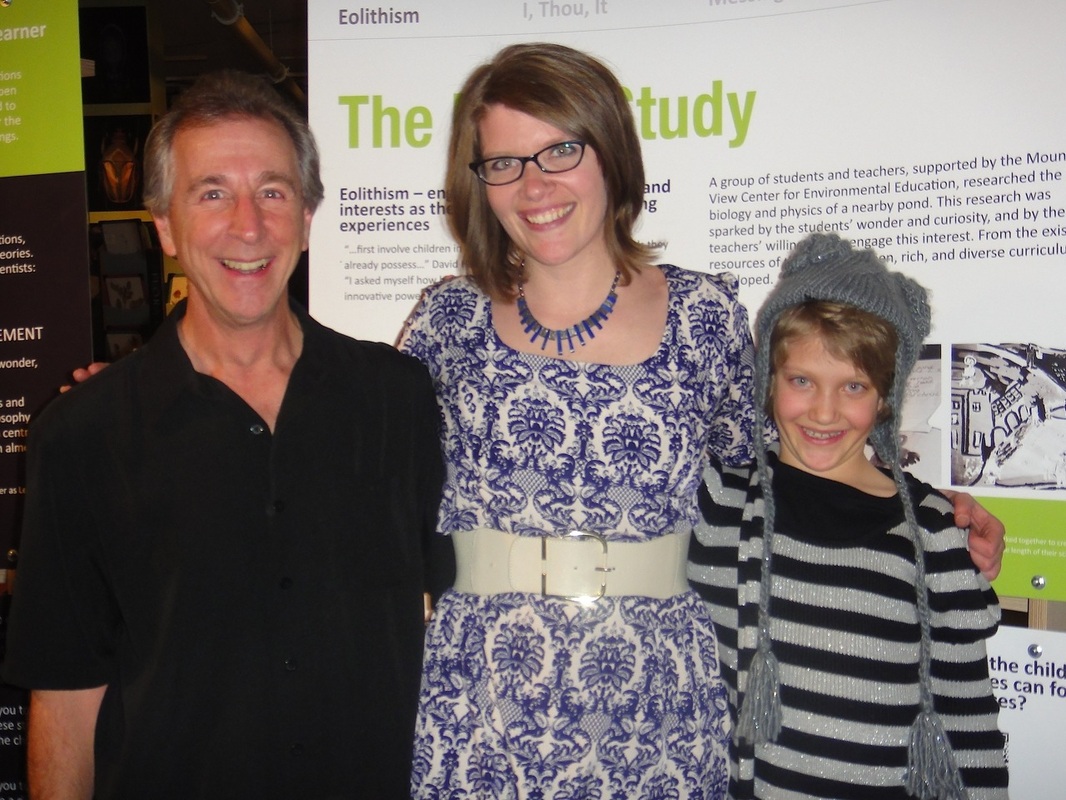For now, we wanted to share this reflection from the original opening, held at the University of Colorado Boulder.
Eddie Goldstein, friend of the Hawkins and currently the Denver Museum of Nature and Science's (DMNS) senior space science educator, shared this reflection with DMNS Galaxy Guides after attending the opening:
Hi Museum Galaxy Guides,
This past week I went to an opening of an exhibit at the University of Colorado Natural History Museum about the work of David and Frances Hawkins. In their day, they were quite well known and internationally respected science educators.
Although they lived in Boulder, I met them when I was working at the Capital Children's Museum in Washington, DC in the 1980s. They had a great understanding of how to communicate, not only the facts of science, but a love for science. So, although I didn't know them that well, I clearly remember the several times we met.
One thing that has always stuck with me is when David said, "Science is not only about making the strange familiar, but also about making the familiar strange." The "strange familiar" part I got. That's about explaining what black holes are. Or how spectroscopy works. Or the latest information from the rovers on Mars. But, "making the familiar strange." That was new to me. That is about filling people with a sense of wonder about things they thought they already knew but hadn't really thought about. Did you ever wonder why you can't tickle yourself? Did you ever wonder why, when you're driving at night in the rain, the streets look darker than when it's dry? Did you ever wonder how the cell phone system can find your phone no matter where in the world you are? In addition to bringing wonder into the world, it extends "scientific thinking" from something that is just done in a lab or observatory into the tools you can use to figure out things you are curious about in everyday life.
David also had a way of making comments that would really make you think. He told a story about when he was helping his next door neighbor girls build a doll house, which they were doing from scratch. At one point he said to one of the little girls, "What this doll house needs is a little doll house inside of it." The little girl thought for a minute and said, "And, that little doll house should have a teeny tiny doll house inside of it!" In a flash, she had caught a glimpse of infinity. That's what David's seemingly off-handed comment was really all about.
The real theme of the exhibit, and an underlying theme of much of the Hawkins' work, was how they believed that teachers and students should be shared learners. Finding something that you and a visitor are BOTH curious about can lead to some of the most powerful learning experiences. For both of you. In the exhibit they ask, "In what ways do you consider yourself to be an active learner? How are your learning pursuits inspired by the children in your life?"
To that I'll add: When was the last time that a visitor asked you a question that piqued YOUR curiosity, so much so that you and the visitor stopped and tried to figure out the answer to that question? Either by grabbing a computer and looking it up, or trying an experiment right then and there in Space Odyssey.
If we want to encourage a love of science, these are good ways to start.
- - Eddie
| Thank you, Eddie, for sharing this wonderful reflection with your team and with us. Thank you for sharing your memories of Frances and David. And thank you to everyone who has been a part of the exhibit over these two years: coordinators who have helped the exhibit to travel, participants who have brought their wisdom to the workshops, visitors who have helped the ideas of Frances and David to continue. Happy New Year! |

 RSS Feed
RSS Feed
